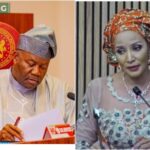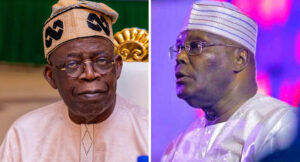The International Monetary Fund (IMF) has underscored the importance of Nigeria’s fuel subsidy removal policy and foreign exchange unification initiative, linking them to potential economic growth and stability. However, the IMF emphasized that to make these policies effective, the Federal Government must enhance its revenue collection through taxation to finance the national budget and address public debts.
Abebe Selassie, Director of the IMF Africa Department, articulated this perspective during a press briefing at the ongoing World Bank Group/IMF Meeting in Marrakech, Morocco, focusing on the Sub-Saharan Africa Regional Economic Outlook.
The deregulation of the downstream oil sector has led to a significant increase in petrol prices, from approximately N185/litre to around N600/litre. This price hike has resulted in considerable hardships for many Nigerians. Additionally, the government’s efforts to unify the official and parallel market exchange rates for the naira have contributed to rising prices of goods and services, triggered by the increase in petrol prices.
Despite initial cost savings from the removal of fuel subsidies by the Federal Government, over 90% of government revenue is currently allocated to servicing debt, leaving limited resources for essential economic growth and development projects.
IMF made clear that the removal of fuel subsidies should be accompanied by a comprehensive set of policies to address Nigeria’s economic challenges. Selassie emphasized the need for a holistic approach, which involves tightening monetary policy and enhancing tax revenue mobilization.
He stated, “The exchange rate reforms that the government did were very, very welcome, trying to unify the rate, similarly the fuel subsidy. But that will not help and will not stick unless you also are tightening monetary policy; unless you’re also doing something to mobilise more tax revenues. So, a holistic package of reforms is what’s needed.”
Selassie highlighted the fiscal challenges Nigeria faces, primarily stemming from inadequate tax revenues. He stressed the potential for holistic reforms that mutually reinforce each other to address these issues.
Nigeria’s over-reliance on oil revenue was noted as a primary obstacle to diversifying its income sources and economic potential. The subsidy regime and its adverse impact on government resources were identified as interlinked issues contributing to challenges such as inflation.
Selassie recognized that the current leadership at the Central Bank of Nigeria and the Ministry of Finance is relatively new, suggesting the importance of giving them time to enact necessary economic measures. He expressed confidence in their ability to make prudent decisions, adding, “I think we have to give a bit of time to the new administration also, I mean, the central bank governor has just been appointed. The Minister of Finance has only been in office for a few weeks. So, we’re hopeful that they will move in the right direction, and we stand there to provide any policy advice the government needs.”










More Stories
FG defends N10bn Aso Rock solar installation, says yearly N47bn presidential villa power bill unsustainable
EFCC declares four Nigerians wanted in alleged N1.3 trillion CBEX fraud
Tinubu sacks NNPCL CEO Mele Kyari, replaces him with ex-Shell MD, Ojulari